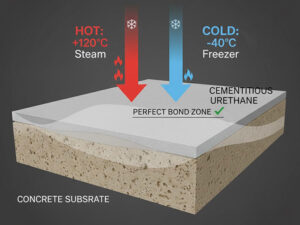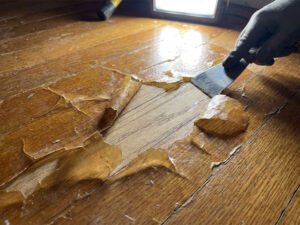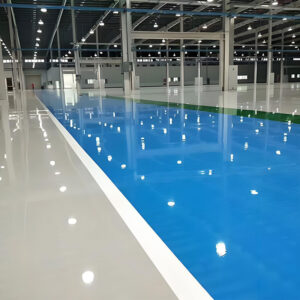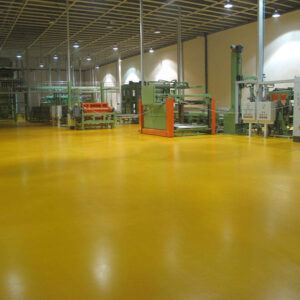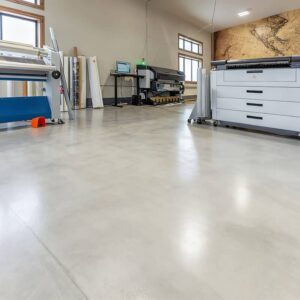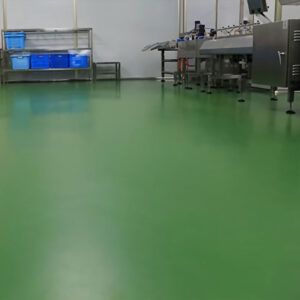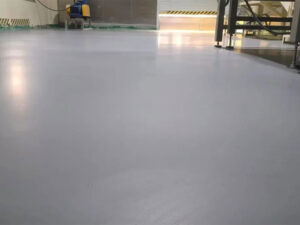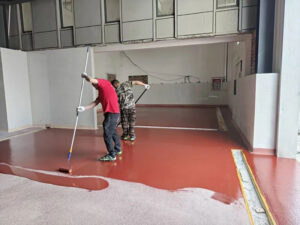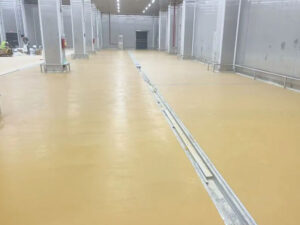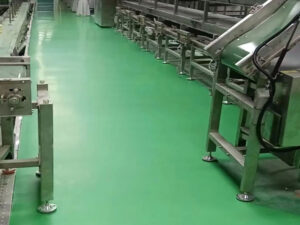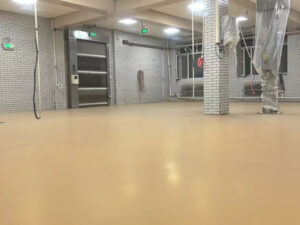Why Polyurethane Floor Paint for Industrial Spaces?
Polyurethane floor paint is a top choice for industrial spaces like factories, warehouses, and parking garages. Its durability, chemical resistance, and ease of maintenance make it ideal for high-traffic areas. But applying it correctly is crucial to ensure long-lasting results.
What is Polyurethane Floor Paint?
Polyurethane floor paint is a protective coating made from polyurethane resins. It’s known for its toughness, flexibility, and resistance to chemicals, abrasion, and UV light. There are two main types: water-based and solvent-based.
Benefits of Polyurethane Floor Paint
- Durability: Perfect for high-traffic areas.
- Chemical Resistance: Withstands spills and harsh substances.
- Aesthetic Appeal: Available in various finishes.
- Safety Features: Offers slip resistance for safer floors.
Pre-Application: Surface Preparation
Before applying polyurethane floor paint, proper surface preparation is essential. This ensures the coating adheres well and lasts longer.
Steps for Preparing Industrial Floors
- Clean the Surface: Remove dirt, grease, and debris.
- Repair Damages: Fill cracks and holes.
- Profile the Surface: Use grinding or shot blasting for better adhesion.
- Test Moisture Levels: Ensure the floor is dry before application.
Application Process: Step-by-Step Guide
Applying polyurethane floor paint in large industrial spaces requires careful planning and execution. Here’s how to do it right.
Tools and Equipment Needed
- Rollers, brushes, or sprayers
- Protective gear (gloves, masks)
- Primer and polyurethane paint
Step-by-Step Application
- Prime the Floor: Apply a primer for better adhesion.
- First Coat: Use a roller or sprayer for even coverage.
- Drying Time: Allow 24 hours for the first coat to dry.
- Second Coat: Apply a second coat for added durability.
Post-Application: Curing and Maintenance
After applying polyurethane floor paint, proper curing and maintenance are key to its longevity.
Curing Process
Allow 48-72 hours for full curing. Avoid heavy traffic during this time.
Maintenance Tips
- Clean regularly with a mild detergent.
- Avoid harsh chemicals that could damage the coating.
- Inspect periodically for wear and tear.
Common Challenges and Solutions
Even with careful application, issues can arise. Here’s how to address them.
Common Issues
- Bubbling: Caused by moisture. Fix by sanding and reapplying.
- Cracking: Due to improper surface preparation. Repair and reapply.
- Uneven Coverage: Use a sprayer for better consistency.
Polyurethane vs. Other Floor Coatings
How does polyurethane floor paint compare to alternatives like epoxy?
Comparison Table
| Feature | Polyurethane | Epoxy |
|---|---|---|
| Durability | High | High |
| Chemical Resistance | Excellent | Good |
| Flexibility | High | Low |
Still unsure? Compare polyurethane vs epoxy floor coatings.
Why Choose Polyurethane for Your Industrial Floor?
Polyurethane floor paint is a durable, cost-effective solution for industrial spaces. With proper application and maintenance, it can last for years.
Ready to transform your industrial space? Contact us today for a free consultation and quote!
See how we transformed industrial spaces with polyurethane floor paint. (Car Park epoxy mortar self-leveling Flooring & Anti-Slip Epoxy Flooring with Grit Broadcast Project)
Explore our range of polyurethane floor paints
FAQs
1. How long does polyurethane floor paint last?
With proper maintenance, it can last up to 10 years.
2. Can polyurethane floor paint be applied over existing coatings?
Yes, but the surface must be properly prepared.
3. What is the drying time for polyurethane floor paint?
Allow 24 hours between coats and 48-72 hours for full curing.
4. Is polyurethane floor paint suitable for outdoor industrial spaces?
Yes, it’s UV-resistant and can withstand outdoor conditions.
5. How do I choose the right polyurethane floor paint for my project?
Consider factors like traffic type, chemical exposure, and desired finish.

